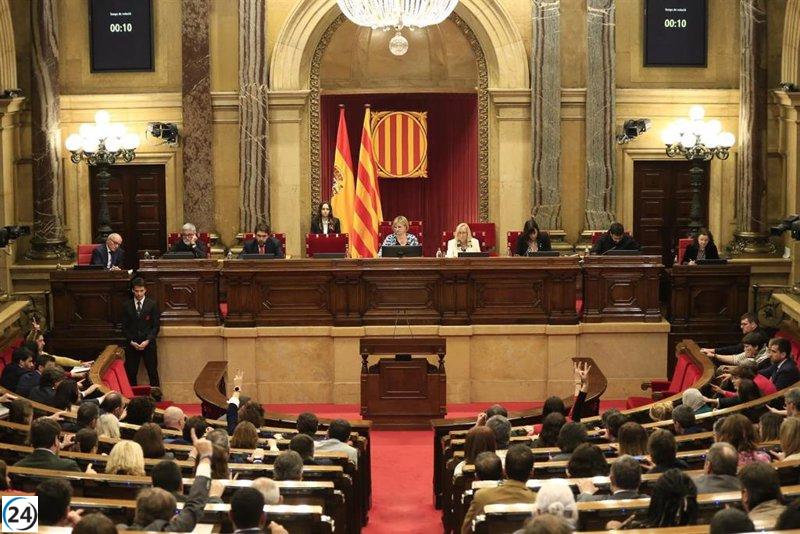
ERC and CUP groups have submitted a proposed law to partially reform the Rules of the Parliament in which they propose to "ban hate speeches" in the Chamber, incorporate remote voting in exceptional situations and expand the cases of proxy voting.
According to a statement, they have been working on the text for months and have shared it with other formations, in addition to considering that one of the most urgent changes needed in the regulations is to update the principles that govern MPs in a context "of rising political extremism."
Therefore, they propose to specify in the Rules that "hate or intolerant speeches may not be used, nor may incitement to discrimination based on gender, sexual orientation, beliefs, ideology, origin, social condition, ethnicity, language, disability or any other", and hence establish criteria to assess it and include it as one of the reasons to call order or expel from the hemicycle.
The proposed modification also specifies that an MP who does not sign the zero tolerance commitment to discrimination and harassment cannot be chosen for Parliament bodies, be named a rapporteur, or be part of the official delegations of the Chamber.
Furthermore, they want the code of conduct to become part of the Rules "to reinforce its legal character," and for institutional statements of the Chamber to be agreed by a qualified majority of two-thirds in the Board of Spokespersons, and not unanimously as until now.
"The two-thirds majority is a majority that allows us to achieve these objectives, and at the same time avoid any attempts at blocking or veto", they claim in the text, in a veiled reference to the position of Vox.
They also propose to incorporate remote voting "in exceptional situations of special seriousness" that may impede the development of parliamentary functions, highlighting that it will be the Board that can authorize MPs to cast their vote using this procedure.
The text also requests to update and flexibilize the cases in which MPs are allowed to delegate their vote, although they also want to limit it to "exceptional situations of special seriousness to guarantee the right to political participation of all MPs."
Until now, voting can only be delegated in case of maternity or paternity leave, as well as in cases of hospitalization, serious illness and prolonged incapacity duly certified, and it is the Board that establishes the general criteria to delimit them and the procedure to do so.
Newsletter
Entérate de las últimas noticias cómodamente desde tu mail.